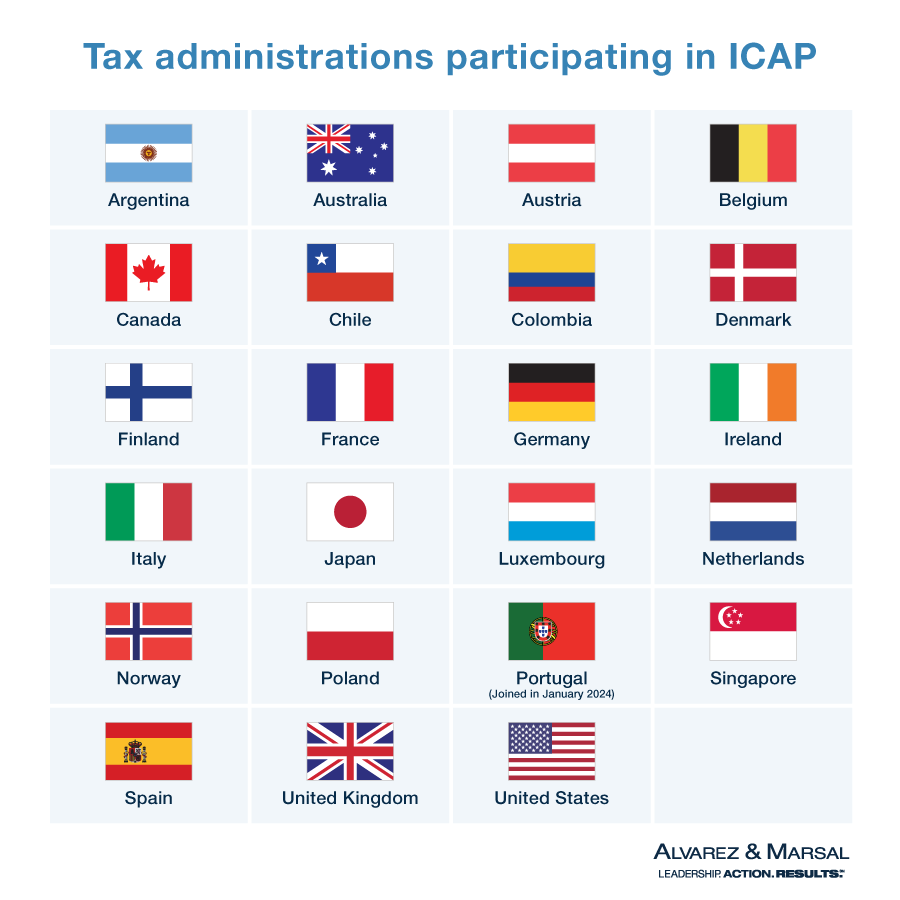German Transfer Pricing Observations: Key Takeaways From the Latest OECD MAP and APA Statistics
The OECD’s recent report shines a light on mutual agreement procedures (MAP) and advanced pricing agreements (APA) across various tax jurisdictions around the world in 2023 [1].
The figures for Germany highlight increasing inventories in the field of transfer pricing MAP and above-average APA work times, often with limited resources available at the tax authority level. This underscores the importance of efficient tax management processes, particularly around the issue of double taxation.
In this article, we analyze key figures from the OECD report for insights on where Germany stands in relation to the rest of the world and its own historical performance on dealing with MAP and APA cases. We also offer key recommendations for businesses to pursue transfer pricing certainty.
Key takeaways for Germany
German MAP cases overall fell in 2023, in keeping with the trend across the world. However, transfer pricing MAP cases increased, a notable exception to the global trend of decreasing inventories.
Jurisdictions around the world also filed APA statistics for the first time, with the OECD’s report shedding light on longer times for APAs to be granted in Germany compared with the global average.
We highlight below some key facts and figures with implications for German transfer pricing, breaking them down into inventory, effectiveness and coordination with other countries.
Increased inventory
- In 2023, the inventory of German transfer pricing MAP cases (started as of 1 January 2016) saw an overall increase, from 650 at the end of 2022 to 688 at end-2023 – a 5.8% increase [2]. Notably, this was against the global trend, which saw a 2.9% reduction in such cases [3].
- Germany started 325 new transfer pricing MAP cases in 2023, roughly half of the total new MAP cases started. 285 transfer pricing MAP cases were closed.
- During 2023, Germany opened 82 new APA cases and at the end of the year, had 375 open APA cases [4]. APA inventory increased by 5.3% from the start of 2023 to the end of the year, compared with an increase of 4.3% globally.
Result and required work time
- A majority of transfer pricing MAP cases achieved complete resolution, both globally and in Germany. In 72% of the cases in Germany, there was agreement fully eliminating double taxation eliminated / fully resolving taxation not in accordance with tax treaty, an improvement from 68% of the cases in 2022.
- In Germany, the time to close a transfer pricing MAP case in 2023 from start to end was 21.68 months for cases started from 1 January 2016. Globally, the average resolution time for cases started before and after 1 January 2016 was 32 months.
- The average time taken to grant APAs in 2023 was 44.5 months in Germany, longer than the global average of 36.79 months.
Coordination with countries
- The OECD report also showed that Germany’s most significant treaty partners based on the number of post-2015 cases remaining in MAP inventory as of end-2023 were: Italy (121), Spain (56), France (45), U.K. (44), Switzerland and the U.S. (39 cases each)
- The “lowest level” coordination countries for Germany, indicating that multinationals doing business in these countries may face higher difficulties in solving tax disputes via MAP, were: China (3), Lithuania (4), Singapore (5), Hungary (6) and Finland (7)
A&M's recommendations
The outlook for tax certainty is not necessarily a positive one. New challenges may arise along with the local implementation of the OECD's framework on Pillar One - Amount A and Amount B and Pillar Two, particularly in low-capacity jurisdictions with limited treaty networks and resources. Geopolitical uncertainty is also on the rise. We recommend the following steps to proactively manage double taxation risks in transfer pricing involving Germany:
- Thorough advanced planning of transfer pricing to address potential double taxation issues early on, thus mitigating risks and ensuring regulatory compliance to the extent possible. This is particularly crucial in light of increased inventories and the lengthy resolution time for transfer pricing APA cases in Germany, compared with the global average.
- Careful, nuanced planning when dealing with low coordination countries, where higher tax uncertainty and administration costs may arise.
- A preventive approach to reduce the risk of disputes through voluntarily participating in the OECD's International Compliance Assurance Programme (ICAP) [5] - a cooperative framework that brings together tax administrations and participating multinational enterprises (MNEs) to resolve cross-border tax risks efficiently and transparently. Below is an overview of the countries participating in ICAP, according to OECD statistics.

- Seeking bilateral APAs for complex and significant intercompany transactions. A concluded APA can prevent potential tax disputes, reduce administrative costs and provide a clear framework for the covered transactions in the future.
- Trying other new measures such as joint or simultaneous audits on transfer pricing practices (involving multiple tax authorities working together), particularly in the European Union. Germany is among the advanced economies with experience in joint audits, with Netherlands, Austria and Italy as partner countries working closely together.
How A&M can help
Taxpayers need to stay alert and monitor German transfer pricing practices as they continue to evolve. If you would like to receive more information on MAP and APA or discuss the best suitable measures for tax certainty in the context of transfer pricing, please get in touch with Clemens Petersen and Cheng Qiu.
[1] Read OECD releases information and statistics on Mutual Agreement Procedures and Advance Pricing Arrangements
[3] Read 2023 Mutual Agreement Procedure Statistics, section on Cases Received





